|
Read my full newsletter with charts and subscribe here.
Hello Friend! As 2020 nears an end, I’d like to start this newsletter a bit different to share some personal things about me that you might not know. We will then get into the many things that have happened since the newsletter last week. Here are the highlights of my life’s journey so far:
TEXAS ECONOMIC AND FISCAL SITUATION Texas’ Legislative Session Starts Jan. 12: More to come on this soon! I’m looking forward to TPPF’s Policy Orientation on Jan. 13-15 that will be live-streamed, so I’ll be sure to add info about it later. Read the entire newsletter here: https://vanceginn.substack.com/p/fiscal-insanity-dc-disappoints-again Hello Friend!
I hope you had a blessed Christmas. My family did as we celebrated Jesus’ birth and his eventual death on the cross for our sins. That salvation came at a great cost, yet another example of how nothing is free. We’re now relaxing after a great day playing outside with our boys and hanging out with friends. Those moments are priceless. What’s not priceless is the latest $908 billion COVID aid bill along with the omnibus that’s combined to be over $2 trillion and appropriately called the “coronabus” given how much pork is in this package. I’ve been calling it “CARES 3.0” because there was the original bill and another bill that added funding to the programs created in the original bill, so this is really the third bill that’s funding many of the same things. And that’s part of the problem, as it comes with a huge cost and President Trump is correct to hint at vetoing it. However, the President’s reasoning seems to be to increase the amount in checks to individuals from $600 to $2,000, which would push incomes well above where they were before the pandemic and provide income to many individuals who weren’t influenced much if at all from the shutdown. This is likely the case for you and me, as we are able to work from home or have savings to live on for a while to deal with this situation. I get the point of advocating for more in a check to individuals as it appeals to struggling Americans and balances some of the atrocities in this monstrosity of a bill, but that doesn’t make it good policy. This notes the importance of work flexibility along with saving for a rainy day but also notes the huge cost to those who aren’t in this boat. Unfortunately, too many have and will continue to fall through the cracks of our economic lifeline that should ultimately be improved by moving toward more capitalism and away from socialism. While civil society should be first to help those in need, governments will play a role though hopefully a more limited one as it assists those who can’t be helped otherwise (last resort). This would help improve our bloated, ineffective safety net system that often just expands bureaucracy and helps too many of those the programs were not intended. Thanks again for reading! I’m truly grateful for you continuing to read this newsletter. As 2020 comes to a close, we have much to accomplish to find opportunities to let people prosper. If you haven’t signed up for my newsletter yet, please register here at no charge. And follow me on Twitter: @vanceginn. Have a Happy New Year if I don’t write another newsletter before then, which I may given how things go in D.C. Until then, many blessings to you and yours. Vance Ginn, Ph.D. | www.vanceginn.com | #LetPeopleProsper Are your kids getting the education they need—either in person, or remotely? It might depend on where you live; it should instead be up to you.
Schools shut down last spring. Some reopened in the fall, some did not. Others, like those in New York City, are closing again. Some schools are trying to mix in-person and virtual instruction. This confusion should be alleviated as much as possible by allowing parents to decide which schooling is best for their kids. Based on the evidence, it seems that schools can safely keep in-person instruction as they aren’t super-spreaders, and that many students benefit from this kind of instruction. A recent national poll found that more than 50% of parents are comfortable with returning to school. The same poll found that half of parents with a choice selected remote education for their children. Ultimately, decisions about schooling should happen closest to students, starting with their parents. The COVID-19 shutdowns have shown us the need for school choice—letting parents decide what schooling works best for their children. Families with means already have more choices, of course. Some have chosen to put their kids in private schools or home school. But other families can’t afford this and must try to make their public school work—while also trying to make ends meet. For example, virtual instruction usually requires an adult’s care to ensure that a child is able to access instruction and learn. This puts extra pressure on working families—they might have to miss work or pay someone else for childcare. We know that normal school breaks can lead to widened educational disparities. Continued school shutdowns could also lead to widening racial wealth disparities in America. A McKinsey study reported that the educational level of the average Black or Hispanic student is two years behind the average white student, based on many factors—including place of residence and wealth disparity. That study also indicates that if in-person instruction doesn’t occur until January 2021 and students receive remote instruction at reduced learning rates (or even no instruction at all), “white students would earn $1,348 a year less (1.6% reduction) over a 40-year working life, [but] the figure is $2,186 a year (3.3% reduction) for Black students and $1,809 (3.0% reduction) for Hispanic ones.” Continuity in students’ educational experiences are also at the forefront of parents’ concerns. A recent survey of 600 full-time, public school teachers across the nation showed that 67% of teachers agreed that completion rates of assignments were worse during distance learning than in-person instruction. The concern is especially high with low-income earners. The Texas Education Agency, for instance, reported a 55.6% drop this spring in progress for online math coursework for low-income families. Still, for many families, the threat from COVID-19 is more concerning than the potential drawbacks of remote instruction, particularly for students or family members who are immunocompromised. And there are at least some families who have thrived in a remote education setting. In the end, parents know their situations and concerns best. The choice should be theirs. In-person schooling, remote learning, or some other model should be their call. The burden shouldn’t lie on parents to be flexible (and accepting of whatever school officials tell them they’ll receive); it’s the school districts that must be flexible—and accountable. Child development doesn’t stop for COVID-19, or any other disruption. We owe American families the flexibility they need to keep their kids on track. And that should start with more choices for parents rather than top-down mandates by governments. https://www.texaspolicy.com/schooling-options-are-essential-during-covid/ Read the full newsletter with figures and subscribe here.
Hello Friend! Can you believe that Christmas and New Year’s are right around the corner? It’s hard for me to believe. We put up our Christmas tree early this year to get into the spirit of celebrating Jesus’ birth and the salvation and grace provided to us through a huge price (Nothing is Free), and this spirit has helped drown some of the negativity going on in the media regarding COVID, the election, and more. I have a lot of what I consider uplifting points to share with you below. It’s important to remember that we live in the most prosperous, most remarkable, and most opportunistic country in the history of man. Sure, there’s much we need to do to improve it because too many have fallen through the cracks, but we have much to be positive about even as the media and many politicians tell us otherwise. So, get your optimistic cap on and maybe grab your favorite drink so you can imagine me telling you the following story. Enjoy! Have a blessed weekend and a Merry Christmas and Happy New Year in case I don’t see you or write another newsletter before then. I’m truly thankful for you and for your interest in reading this newsletter. My only request is that you share this newsletter with at least one of your friends and ask them to register. That would be a great gift! Vance Ginn, Ph.D. | www.vanceginn.com | #LetPeopleProsper In March 2020, during the early part of the COVID-19 pandemic, the U.S. Congress passed the Families First Coronavirus Response Act and then the Coronavirus Aid, Relief, and Economic Security (CARES) Act. The “maintenance of effort” (MOE) provisions authorized in the Families First Act and then enhanced by the CARES Act were to provide a 6.2 percentage point increase in the normal share of Medicaid payments provided to states through the Federal Medical Assistance Percentage (FMAP). These provisions require that those eligible for Medicaid must be kept on the program up to 90 days after the declaration of a public health emergency for COVID-19 ends whether they age out of an eligibility group, have an increase in income, or other reasons noted by the Kaiser Family Foundation (more info at Medicaid.gov). The Health and Human Services declaration, which is set to expire on January 20, 2021, should not be renewed by the secretary as this enhanced MOE could represent an increased cost to taxpayers to fund more people on Medicaid along with an increased dependence on the program for people not meant to be on it. https://www.texaspolicy.com/ending-medicaids-enhanced-maintenance-of-effort-provisions/ The Texas economy has continued to recover since the steep downturn due to the COVID-19 pandemic and shutdowns by state and local governments in March. The partial reopening of most non-essential businesses has been a key part of that recovery, but the rise in COVID-19 hospitalizations has contributed to increased capacity restrictions that have slowed economic activity. https://www.texaspolicy.com/texaseconomy/ Many Americans are recovering after the economic collapse that began in March due to the COVID-19 pandemic and shutdowns by state and local governments. While the strength of that recovery has weakened, a sound policy approach will help support a safe, expedited, and less debt-riddled rebound so Americans have more opportunities to prosper. https://www.texaspolicy.com/the-ginn-economic-brief/ Today, the Texas Public Policy Foundation released five papers that together form a responsible strategy for the state’s immediate and long-term economic growth.
“These five approaches make for good economic policy anytime,” said TPPF Chief Economist Vance Ginn, Ph.D. “But they are especially important as the state recovers from government-imposed shutdowns. Together, these strategies will help return Texas to the prosperity we saw before COVID-19 and help get us there fast.” The Five-Step Strategy is:
“During the shutdown, the state suspended some rules and regulations, proving they weren’t essential for health and safety in the first place,” said Rod Bordelon, TPPF’s Policy Director for the Remember the Taxpayer Campaign. “Instead of waiting for the crisis to end to re-evaluate these regulations, we should repeal them now and review others in an ongoing basis so that Texans aren’t held back by unnecessary restrictions.” The Responsible Recovery Agenda also stresses that budget writers should avoid seeking additional state revenue through increased fees and taxes. “Raising taxes is a costly endeavor — even more so in a recession because it distorts behavior at a time when the economy is weak, delaying recovery and leading to even greater economic stress,” said Benjamin Priday, Ph.D., Economist at TPPF. “Legislators should close budget gaps first by strategically employing the Rainy Day Fund and by trying to find ways to reduce spending. The Responsible Recovery Agenda is a comprehensive approach to addressing the budget challenges Texas faces in the wake of COVID-19 shutdowns while also preserving the success of the Texas Model, which has strengthened the state’s economy. For a historical look at the budget and other ways to improve the budget process, the Foundation also released The Real Texas Budget report. Texas’s Economic Stabilization Fund (or “rainy day fund”) is a valuable tool for covering unexpected shortfalls in tax receipts, like those during the COVID-19 pandemic, but it should be used sparingly, and budget reductions should be prioritized instead. Key points:
https://www.texaspolicy.com/texass-rainy-day-fund-how-to-use-it-responsibly/ The COVID-19-induced recession in Texas has strained the ability of many Texans to pay taxes to fund the state’s budget. The Legislature should consider prioritizing budget reductions to cover any potential budget shortfall. Key points:
https://www.texaspolicy.com/prioritizing-texas-budget-reductions-amid-deficits-due-to-the-covid-19-induced-recession/ The Real Texas Budget provides an overview of government spending from 2004-05 to 2018-19. It demonstrates the need for reforms to restrain the growth of government spending and increase budget transparency. Key points:
https://www.texaspolicy.com/2020-real-texas-budget-the-state-of-texass-spending/ Read full newsletter with figures and subscribe here.
Hello Friend! I hope you had a blessed Thanksgiving however you chose to celebrate it. I had a nice time with my family from Houston at our place in Round Rock and then a nice time with my in-laws in Port Aransas, which is on the beach near Corpus Christi, Texas. The picture below is of my youngest son playing in the water. It’s been an interesting time that’s normally spent with family. But many have decided not to do so, which is a decision that should be left to individuals instead of politicians trying to tell people how to act. One thing that I’ve been concerned about is missing time with my family and friends and never seeing them again—for many reasons. The COVID-19 situation is serious and one that should be taken seriously, as noted in my previous newsletter, but it is also a situation where I have taken time to grow closer to God, family, and friends when so much else seems to be uncertain. This has given me calm during this storm as I know that these relationships are what matter over time while the novel coronavirus is just a blip in the long run scheme of things. Of course, the repercussions of authoritarian forms of government interventions may last much longer, which is something that we must continue to push back on when necessary. To be frank, I think we should open Texas and all states, as the shutdowns were a mistake, and instead do what should have been done in the beginning and have the government play an informational role to provide guidance on best practices while targeting resources to vulnerable populations and areas as I outlined in a recent commentary at the Austin American-Statesman. I say this with a great deal of humility as there are many factors that go into making these decisions and I understand that I could be wrong. But I also believe strongly in the power of liberty and allowing individuals, families, and entrepreneurs in an inclusive institutional framework (like the Texas Model) to find the best path to dealing with these sorts of crises rather than the government. Thanks again for reading! I hope this newsletter is marginally beneficial to you and will hopefully help us to find opportunities to let people prosper. Vance Ginn, Ph.D. | www.vanceginn.com | #LetPeopleProsper We at the Texas Public Policy Foundation are saddened to learn of the passing of economist Walter E. Williams.
“Walter Williams’s journey from the projects of Philadelphia to a professorship in economics at George Mason University—and becoming one of the most recognized and respected conservative voices of our time—was remarkable,” said TPPF Executive Director Kevin Roberts. “His great gift was communicating complex economic principles in everyday language. Always a cheerful combatant—yet one who would ‘Suffer No Fools,’ as the title of a documentary about him pointed out—Walter was an effective advocate for freedom.” “There are few people who so eloquently explained how people can prosper—given scarce resources and limited government involvement—than the free market economist Walter Williams,” said TPPF Chief Economist Vance Ginn. “It was a pleasure to read and learn from his many academic publications, commentaries, and books over the years. While it’s a day to mourn his loss, let’s also celebrate his many gifts to us and continue to build on them, so that every person has the best chance to thrive in life—like he did.” https://www.texaspolicy.com/press/tppf-statement-on-the-passing-of-esteemed-economist-walter-williams |
Vance Ginn, Ph.D.
|
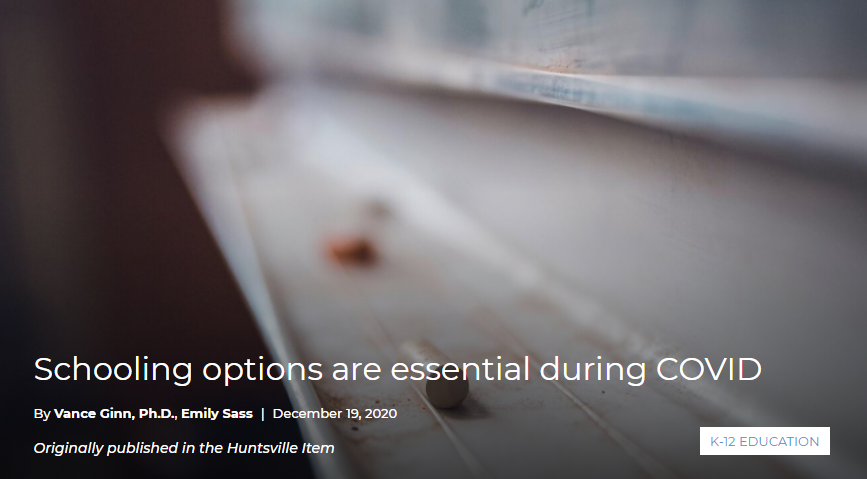
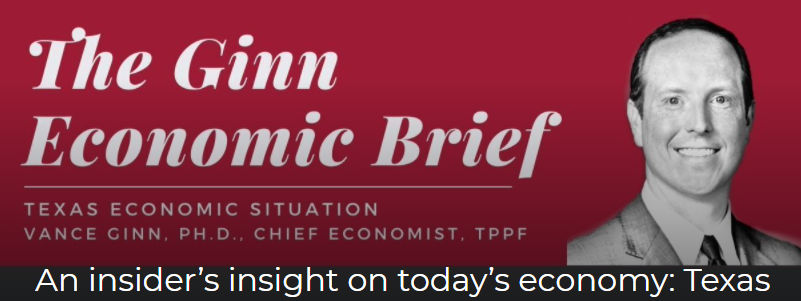
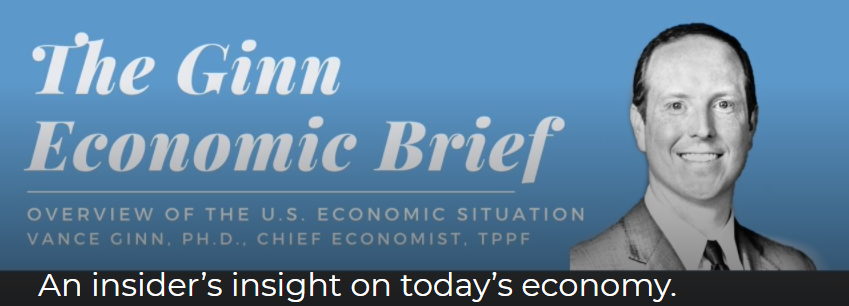
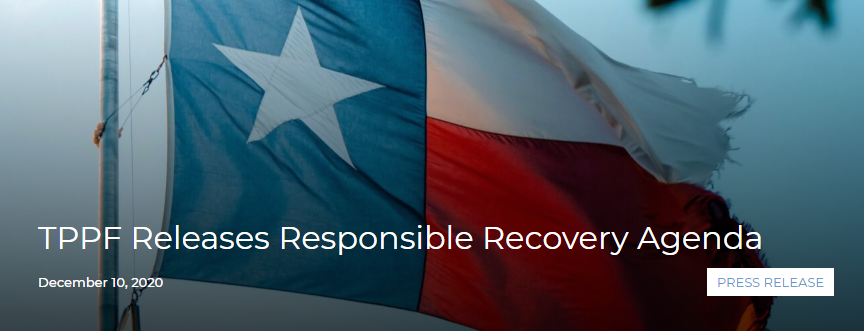
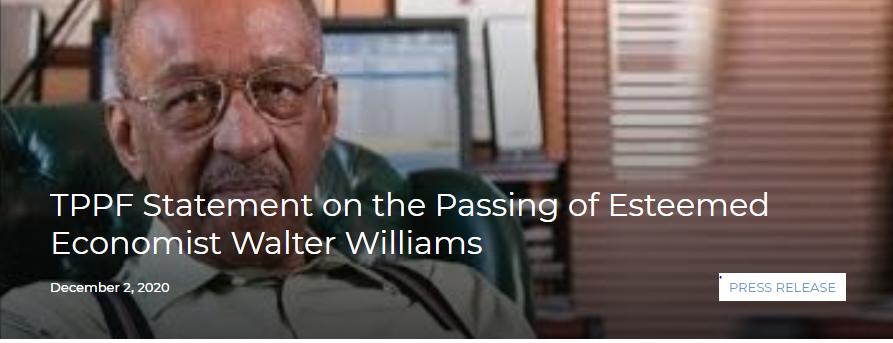

 RSS Feed
RSS Feed